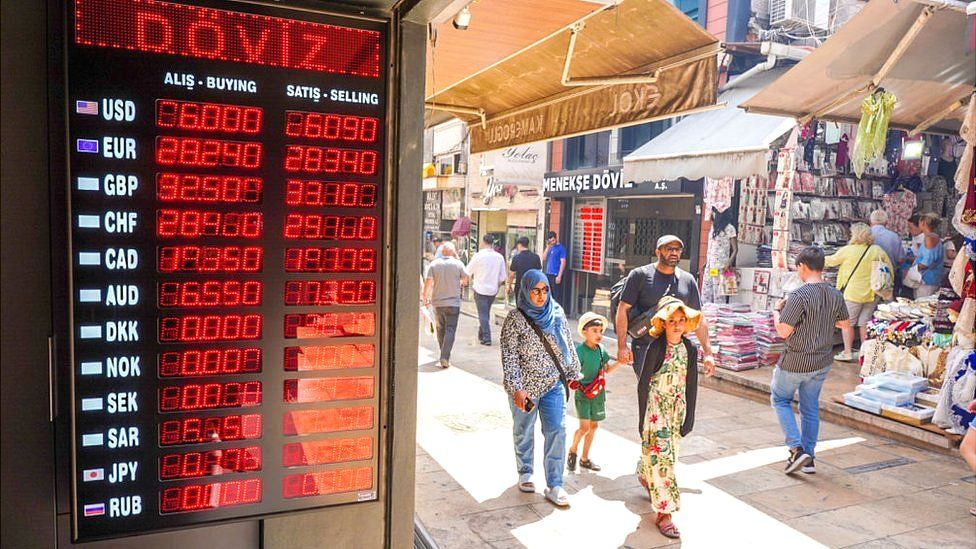-

-
-
Loading

Loading

Turkey's central bank has implemented a significant increase in its main interest rate, raising it from 35% to 40%. This decision is part of a larger effort to address the country's surging inflation. The rate hike was larger than anticipated and signals the central bank's commitment to tackling the issue head-on. The inflation rate in Turkey reached 61.36% in October and is projected to continue rising, peaking at around 70 to 75% in May of next year. Central banks worldwide have been increasing interest rates in an attempt to curb rising prices. However, President Recep Tayyip Erdogan had previously resisted this economic approach, believing that higher rates would lead to even higher prices. Since his re-election in May, President Erdogan has shifted his stance on interest rates. The central bank, now led by Hafize Gaye Erkan, a former Wall Street banker, has been granted the authority to raise rates from 8.5% to 40%. This move aims to increase borrowing costs and slow down price increases. The central bank stated that the pace of monetary tightening would gradually decrease as the tightening cycle nears completion. It also affirmed that interest rates would remain high for as long as necessary to ensure sustainable price stability. Turkey experienced substantial economic growth in the early years of President Erdogan's leadership. However, in recent times, the economy has faced challenges. The central bank's previous policy of reducing interest rates despite high inflation triggered a currency crisis in 2021. As a response, the government introduced a scheme to safeguard lira deposits against currency depreciation.